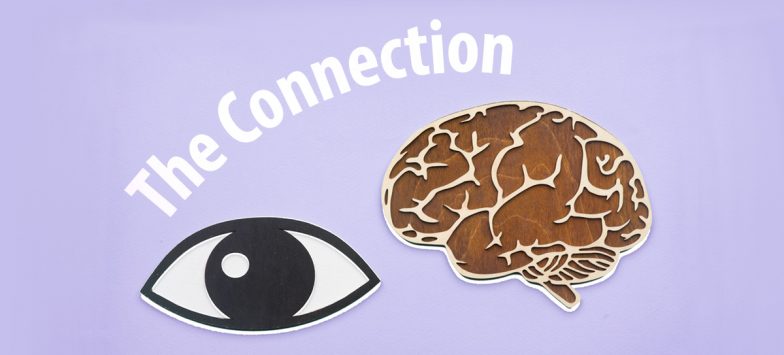
The Brain-Eye Connection: How Your Brain Influences Your Vision and Eye Health
Our brains are amazing data processors – let’s take, for example, the way our eyes and brain work hand-in-hand to enable us to perceive the world around us. The connection between our eyes and the brain is a remarkable feat of biological engineering. In this Atlantic Eye blog, we explore this intricate relationship, highlighting how the brain processes visual information and how eye conditions can affect brain function. We will also provide tips and advice on maintaining healthy vision and brain health.
The Visual Cortex and Visual Information Processing:
The visual cortex, located at the back of the brain, is responsible for processing visual information received from our eyes. It analyzes the signals sent by the eyes and interprets them into the images we perceive. This complex process allows us to recognize objects, navigate our surroundings, and appreciate the beauty of the world.
Impact of Eye Conditions on Brain Function:
Eye conditions such as cataracts, glaucoma, and macular degeneration can affect the visual signals reaching the brain. These conditions can disrupt the transmission of information, leading to visual impairment or even blindness. However, the brain’s ability to adapt and rewire itself, known as neuroplasticity, can help compensate for these changes. It allows the brain to reorganize its neural connections, maximizing the use of available visual input.
Maintaining Brain and Eye Health:
1. Regular Eye Exams:
Scheduling routine eye exams is crucial for maintaining both eye and brain health. Eye exams can detect and address vision problems early, allowing for timely intervention. This not only protects your eyes but also ensures optimal brain function.
2. Healthy Lifestyle Habits:
A healthy lifestyle plays a significant role in preserving brain and eye health. Regular exercise, a balanced diet rich in antioxidants and omega-3 fatty acids, and adequate sleep all contribute to overall brain and eye health. Stay hydrated, avoid smoking, and protect your eyes from harmful UV rays by wearing sunglasses when outdoors.
3. Cognitive Stimulation:
Engaging in brain-stimulating activities can help maintain cognitive function and enhance visual processing. Activities like reading, puzzles, learning new skills, and socializing stimulate different parts of the brain, improving overall brain health. Additionally, specific eye exercises, recommended by your eye care professional, may help maintain visual acuity and eye-brain coordination.
As you see from the above, our eyes and brain work hand-in-hand to allow us to experience and interpret the world through visuals. Understanding this intricate connection helps us learn ways to preserve both vision and brain function. Some steps you can take include scheduling regular eye exams, adopting a healthy lifestyle, and engaging in brain-stimulating activities. At Atlantic Eye, we’re here to help you take the initiative to care for your eyes and mind. Remember, a healthier brain and stronger eyesight can pave the way to a more vibrant and fulfilling life.
